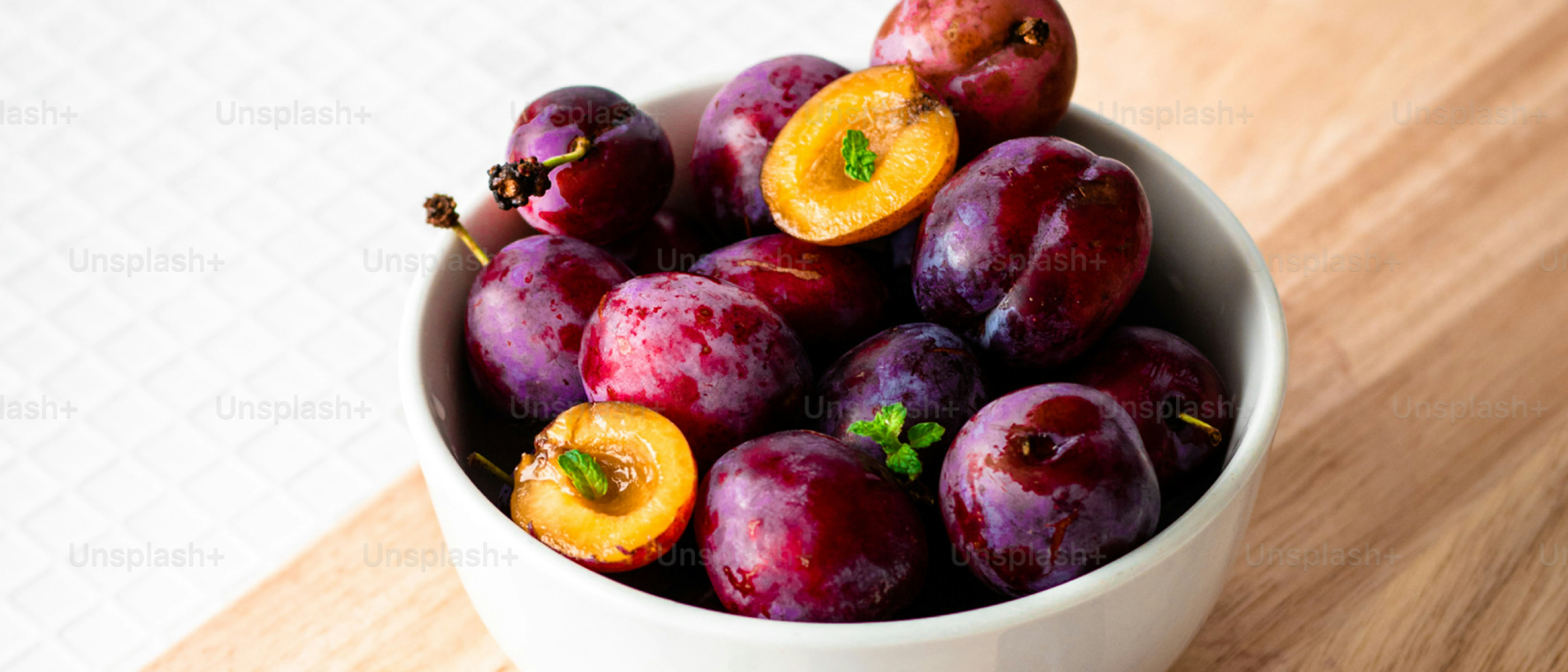What Happens to Your Body When You Eat Prunes Every Day
Posted on June 18, 2025 • 3 min read • 629 wordsDaily prune consumption offers multifaceted health benefits, including bone protection, gut microbiota modulation, and metabolic support, as revealed by recent studies.

Prunes, the dried form of European plums, have long been celebrated for their role in digestive health, but recent scientific advancements have uncovered their broader potential as a “superfood” in healthy diets. With rising global concerns over osteoporosis, gut dysbiosis, and metabolic disorders, prunes have emerged as a natural, accessible solution. This article explores the physiological impacts of daily prune consumption, drawing on cutting-edge research to highlight benefits for bone health, gut microbiota, inflammation, and metabolic function.
Prunes and Bone Health: A Protective Shield Against Osteoporosis
Osteoporosis, particularly prevalent in postmenopausal women due to estrogen decline, affects over 13 million women aged 50+ globally. Studies consistently show prunes as a powerful ally in preserving bone mineral density (BMD). A 12-month randomized controlled trial (RCT) in postmenopausal women found that consuming 50g of prunes daily prevented hip BMD loss, with the control group experiencing a -1.1% decline versus a -0.3% decline in the prune group [1] .
Mechanistically, prunes may counteract bone resorption (breakdown) and enhance formation. In a mouse model of glucocorticoid-induced osteoporosis, even 5% prune supplementation (by weight) prevented trabecular bone loss, with higher doses (25%) tripling trabecular bone volume [2] . These effects extend to younger populations too: a 2024 RCT found prunes blunted bone loss in young women using oral contraceptives, a group at risk of suboptimal bone health [3] .
Gut Microbiota Modulation: A Key to Digestive and Systemic Health
The gut microbiome, a critical regulator of digestion, immunity, and even bone health, is significantly influenced by prunes. A 2023 review noted prunes (along with raisins and dates) positively alter gut microbiota composition, potentially increasing beneficial bacteria like Bifidobacterium and Lactobacillus [4] .
In the Prune Study, postmenopausal women consuming 50-100g prunes daily showed shifts in gut microbiota linked to reduced inflammation and improved bone metabolism [5] . This microbial modulation may explain prunes’ dual role in digestive regularity (via sorbitol and fiber) and systemic health.
Antioxidant and Anti-Inflammatory Effects: Combating Oxidative Stress
Prunes are rich in phenolic compounds (e.g., chlorogenic acid, neochlorogenic acid) and antioxidants, which neutralize free radicals and reduce inflammation—key drivers of aging and chronic diseases. A 2022 review highlighted prunes’ ability to suppress NF-κB (a pro-inflammatory pathway) and increase antioxidant enzymes, such as superoxide dismutase, in preclinical models [6] .
Human studies echo these findings: 12 months of prune consumption in men reduced markers of bone resorption (e.g., TRAP5b, CTX) by 10-15%, likely via anti-inflammatory mechanisms [7] .
Metabolic Benefits: Supporting Weight Management and Cardiovascular Health
While prunes are calorie-dense (≈240 kcal/100g), their fiber and sorbitol content promote satiety. An ancillary analysis of the Prune Study found 100g/day prunes prevented increases in central adiposity (android fat) in postmenopausal women, a risk factor for cardiovascular disease [8] . Though no significant changes in blood lipids were observed, these results suggest prunes may support metabolic health in aging populations.
Food Nutrition: Key Nutrients in Prunes
Prunes are nutrient-dense, with the following approximate values per 100g (based on 2019 analysis) [9] :
| Nutrient | Amount per 100g | Daily Recommended Intake (Adults) |
|---|---|---|
| Dietary Fiber | 12g | 25-30g |
| Sorbitol | 11.2-15.5g | No formal RDI; moderate intake advised |
| Potassium | 745mg | 4700mg |
| Vitamin K | 6.4μg | 90-120μg |
| Phenolic Acids | 600-800mg | No formal RDI; linked to antioxidant benefits |
Conclusion
Daily prune consumption emerges as a simple yet powerful dietary strategy with multifaceted health benefits. From preserving bone density in postmenopausal women and young adults to modulating gut microbiota and reducing inflammation, prunes offer evidence-based advantages. While more research is needed on long-term effects and optimal dosages, current studies support integrating 50-100g of prunes daily into a balanced diet—particularly for those at risk of osteoporosis or metabolic disorders. As with any food, moderation is key, but prunes stand out as a natural, delicious addition to a healthy lifestyle.
Sources
-
De Souza MJ, Strock NCA, Williams NI. Prunes preserve hip bone mineral density in a 12-month randomized controlled trial in postmenopausal women: the Prune Study. The American Journal of Clinical Nutrition 116:1101-1112.(2022). doi:10.1093/ajcn/nqac189 ↩︎
-
Chargo NJ, Neugebauer K, Guzior DV. Glucocorticoid-induced osteoporosis is prevented by dietary prune in female mice. Frontiers in Cell and Developmental Biology 11:1324649.(2023). doi:10.3389/fcell.2023.1324649 ↩︎
-
DeMasi T, Tsang M, Mueller J. Prunes May Blunt Adverse Effects of Oral Contraceptives on Bone Health in Young Adult Women: A Randomized Clinical Trial. Current Developments in Nutrition 8:104417.(2024). doi:10.1016/j.cdnut.2024.104417 ↩︎
-
Alasalvar C, Chang SK, Kris-Etherton PM. Dried Fruits: Bioactives, Effects on Gut Microbiota, and Possible Health Benefits-An Update. Nutrients 15:1611.(2023). doi:10.3390/nu15071611 ↩︎
-
Simpson AMR, De Souza MJ, Damani J. Gut microbes differ in postmenopausal women responding to prunes to maintain hip bone mineral density. Frontiers in Nutrition 11:1389638.(2024). doi:10.3389/fnut.2024.1389638 ↩︎
-
Damani JJ, De Souza MJ, VanEvery HL. The Role of Prunes in Modulating Inflammatory Pathways to Improve Bone Health in Postmenopausal Women. Advances in Nutrition 13:nmab162.(2022). doi:10.1093/advances/nmab162 ↩︎
-
Hooshmand S, Gaffen D, Eisner A. Effects of 12 Months Consumption of 100g Dried Plum (Prunes) on Bone Biomarkers, Density, and Strength in Men. Journal of Medicinal Food 25:1089-1098.(2022). doi:10.1089/jmf.2021.0080 ↩︎
-
Damani JJ, Rogers CJ, Lee H. Effects of Prune (Dried Plum) Supplementation on Cardiometabolic Health in Postmenopausal Women: An Ancillary Analysis of a 12-Month Randomized Controlled Trial, The Prune Study. The Journal of Nutrition 202:112-122.(2024). doi:10.1016/j.tjnut.2024.03.012 ↩︎
-
Gill SK, Lever E, Emery PW. Nutrient, fibre, sorbitol and chlorogenic acid content of prunes. Nutrition Research 68:1-10.(2019). doi:10.1080/09637486.2019.1600664 ↩︎